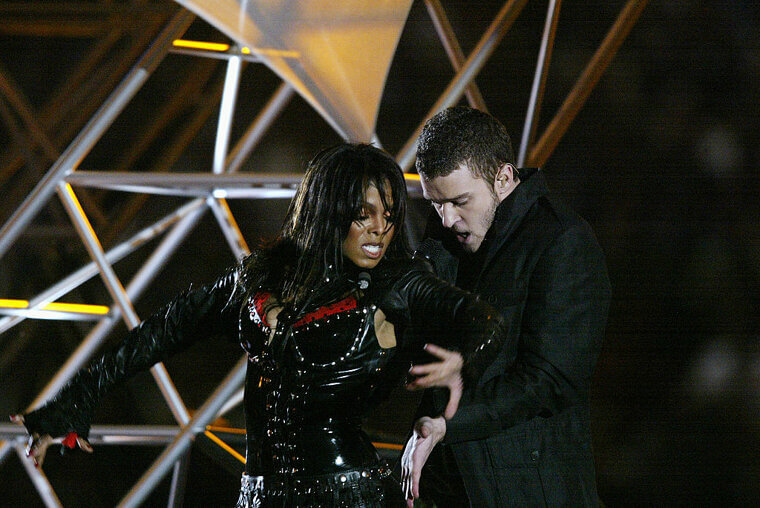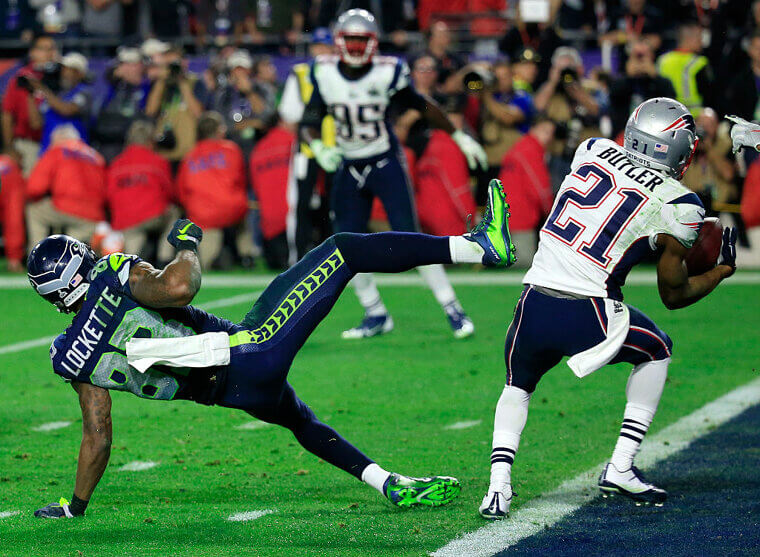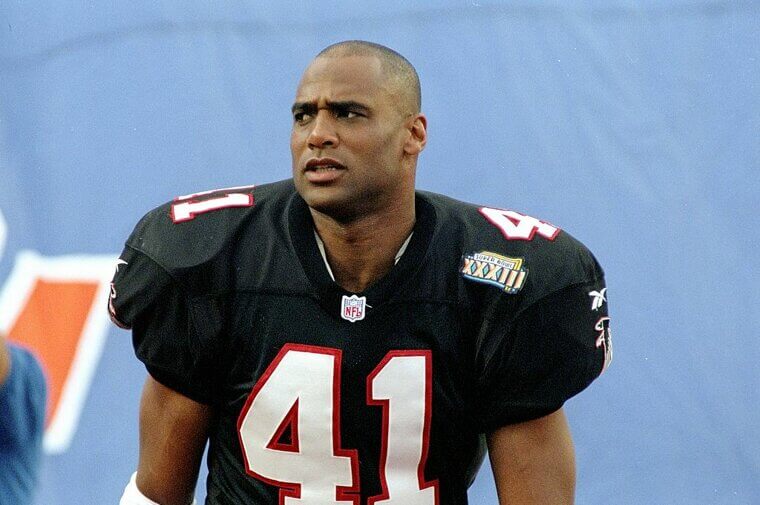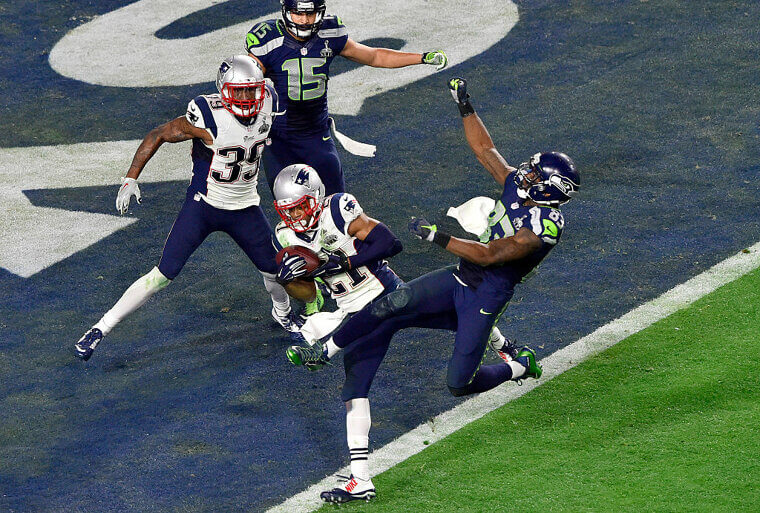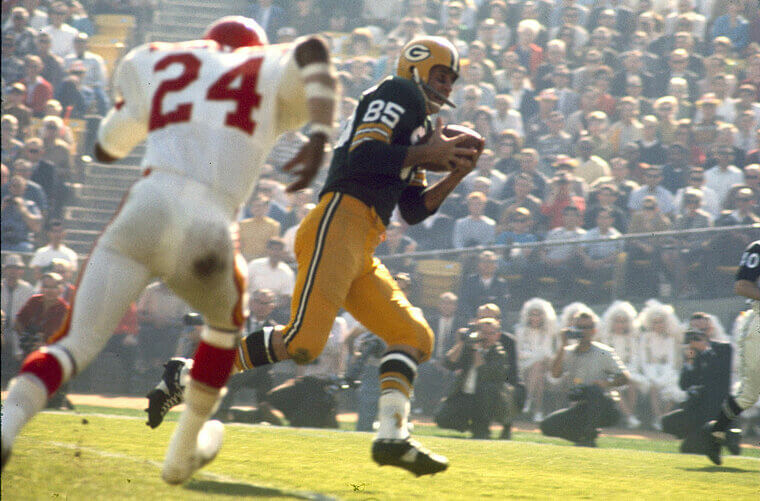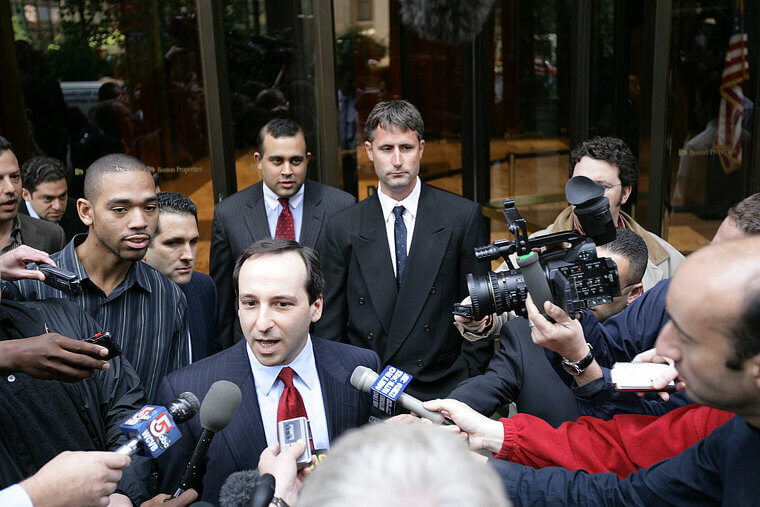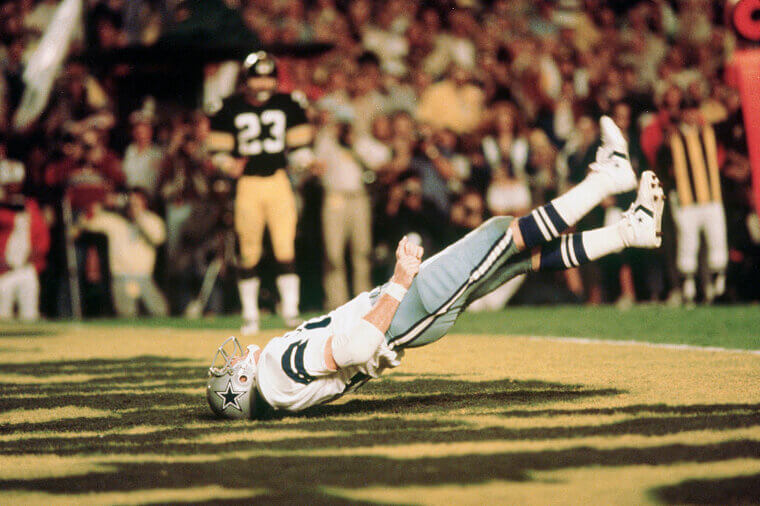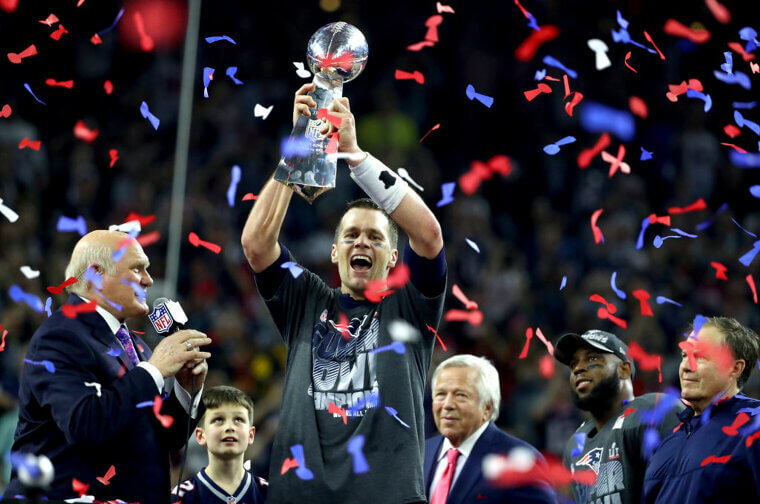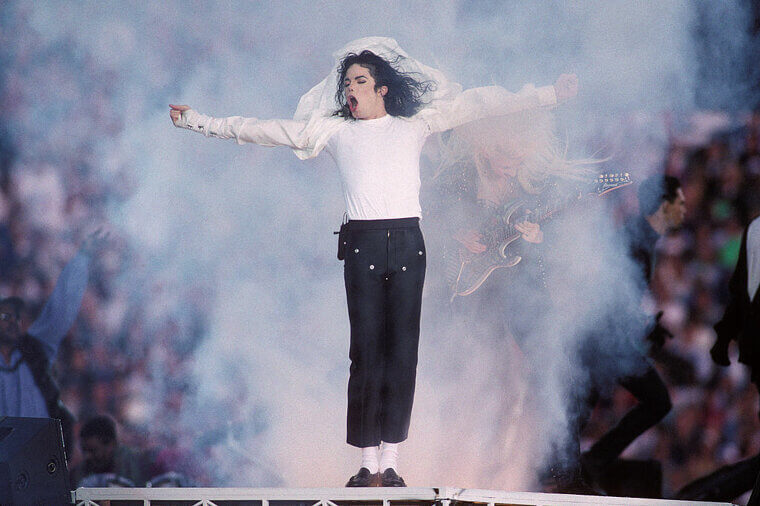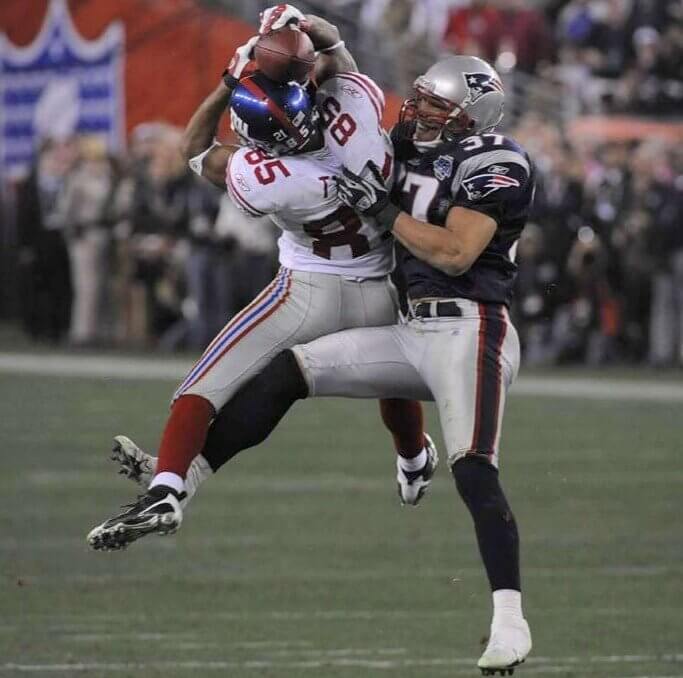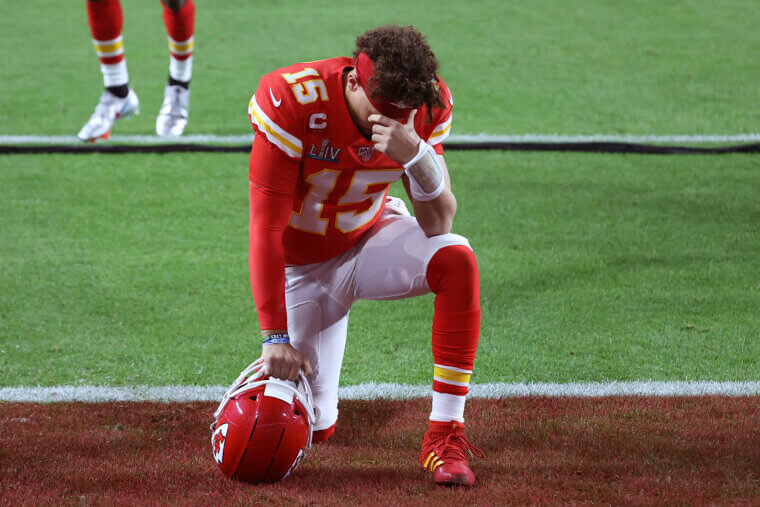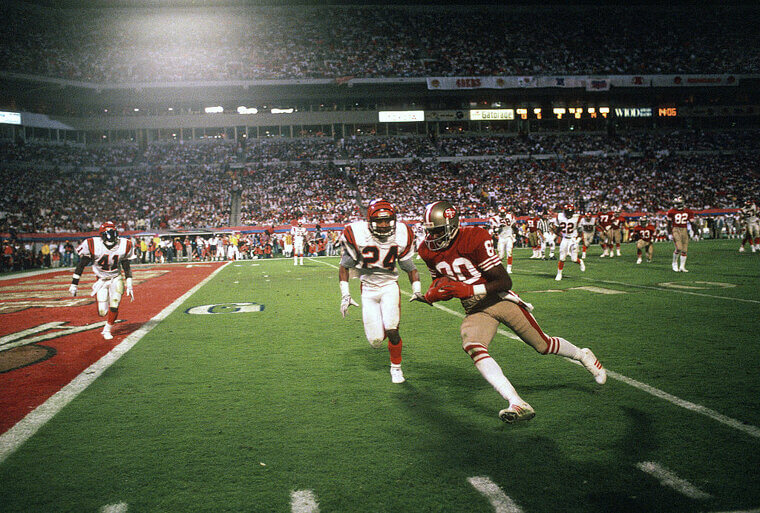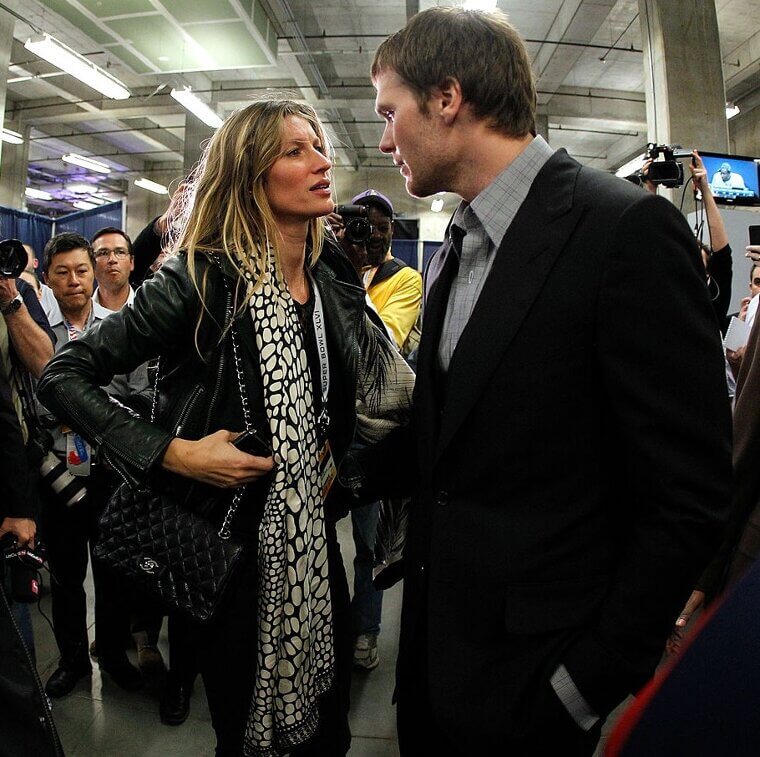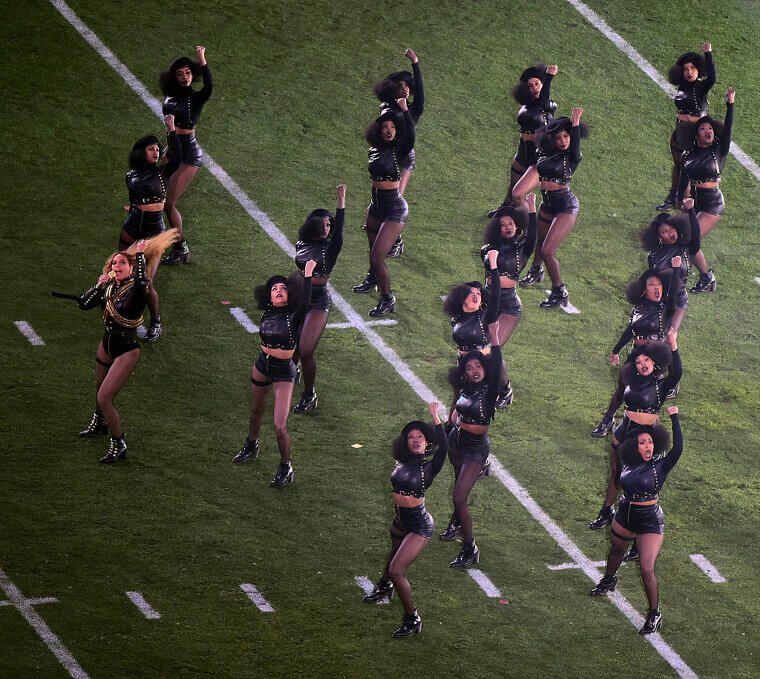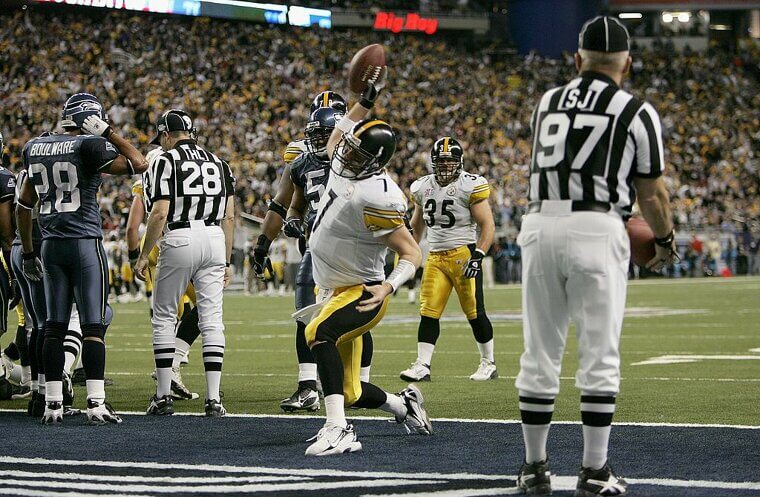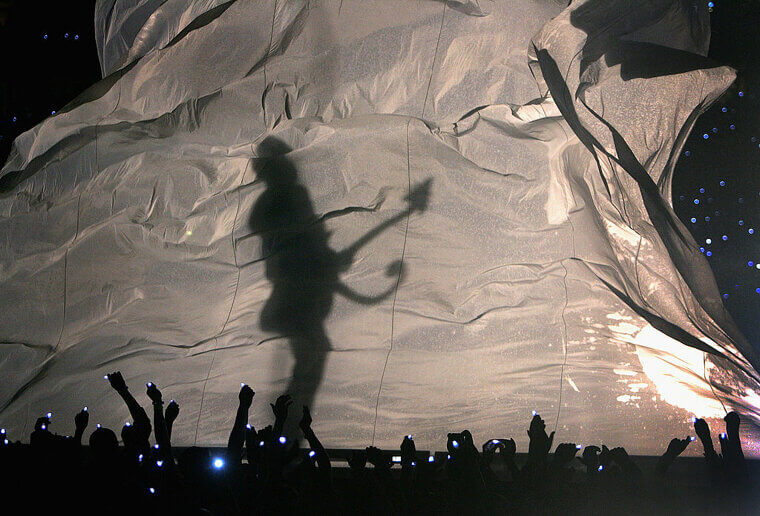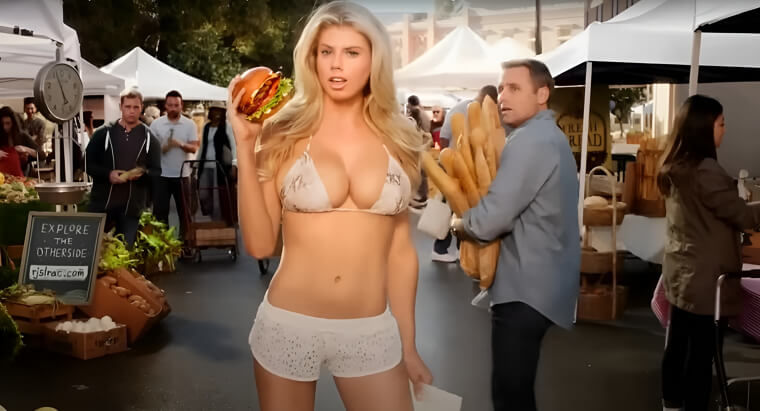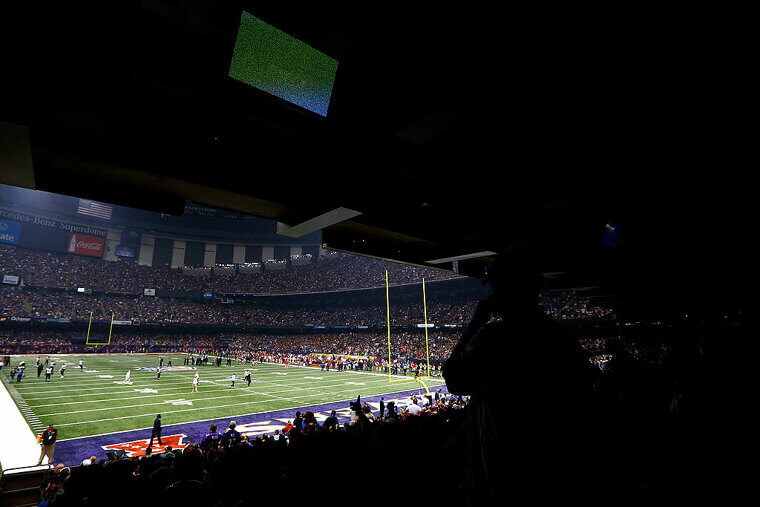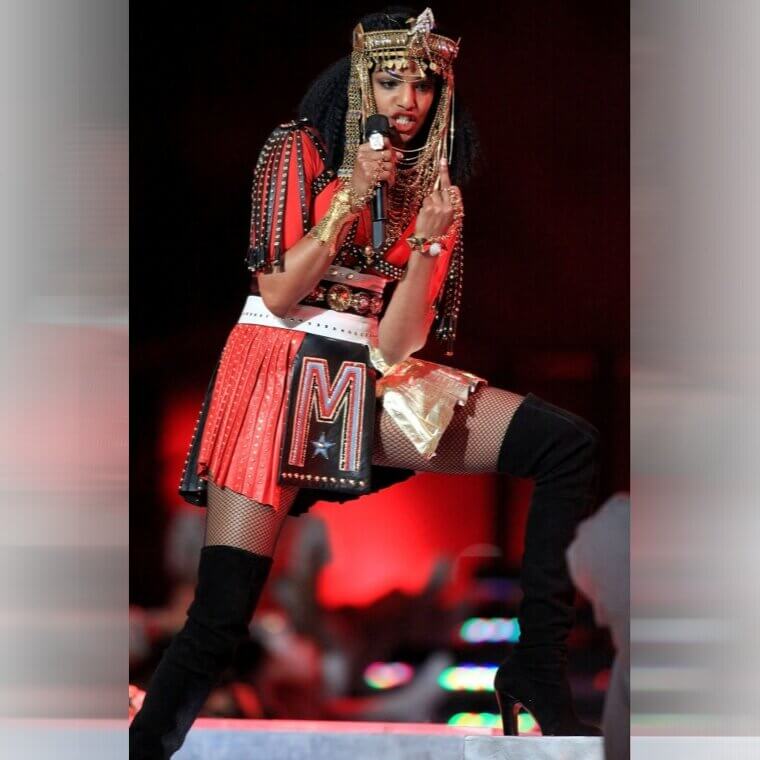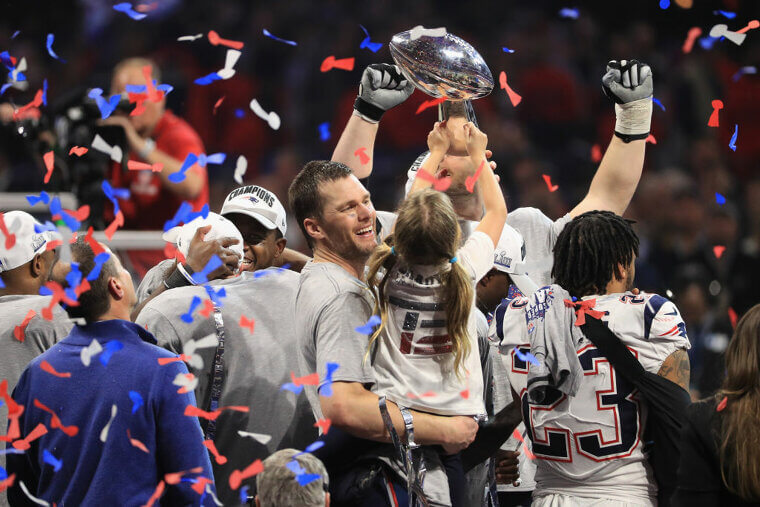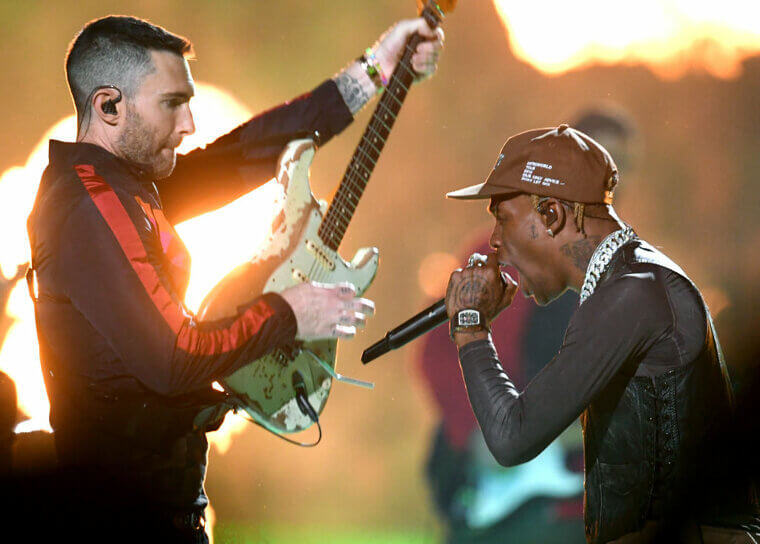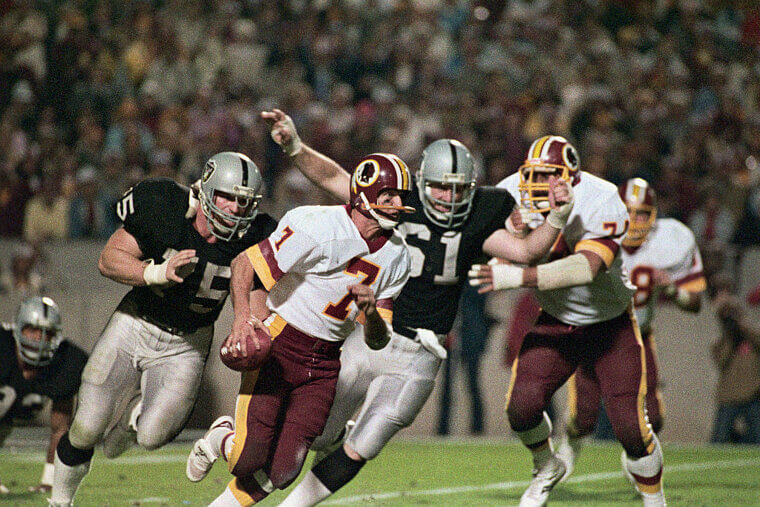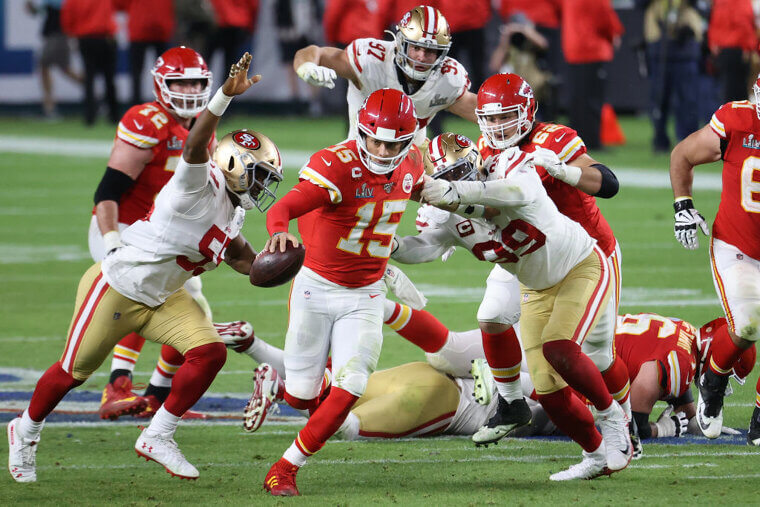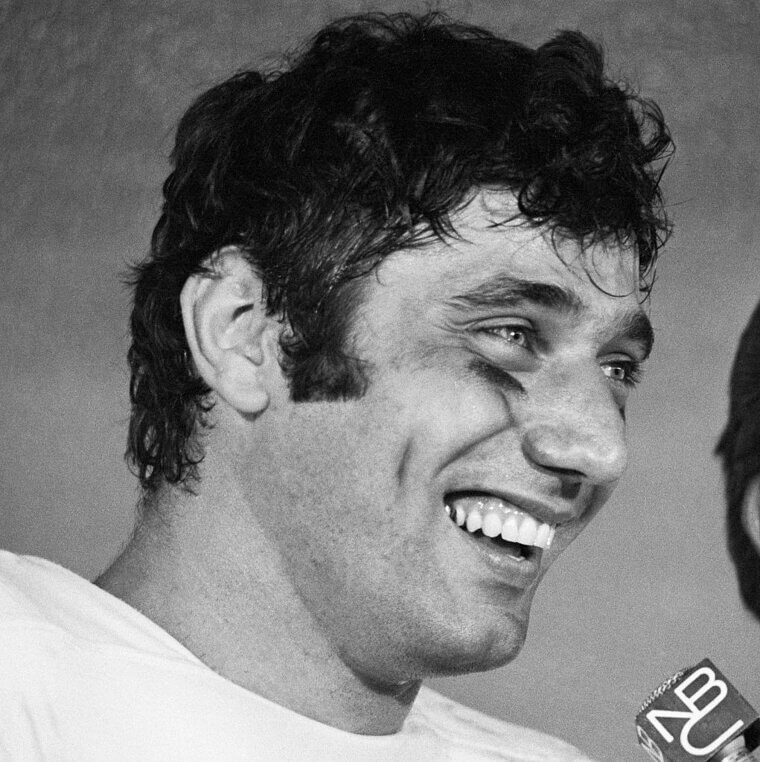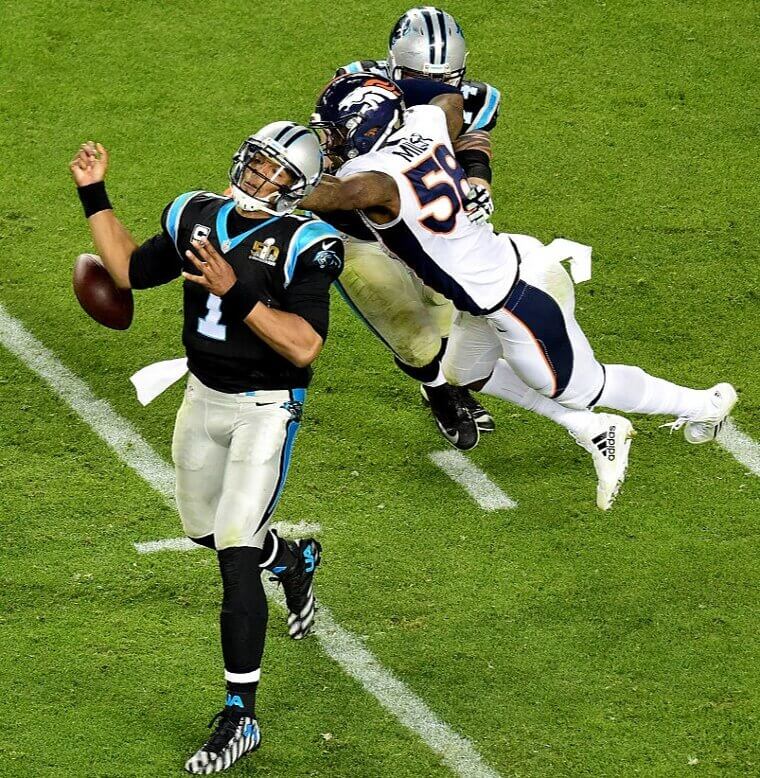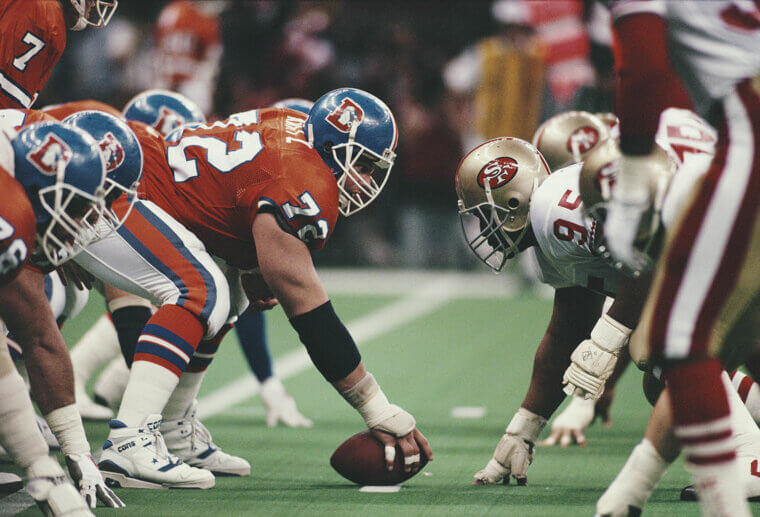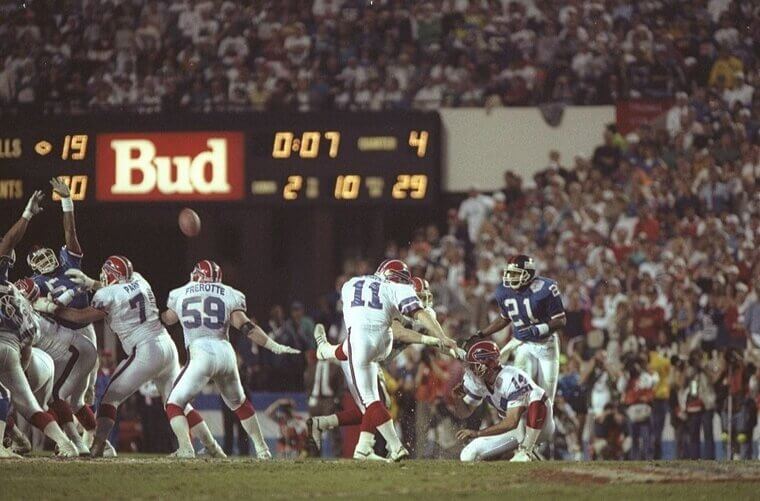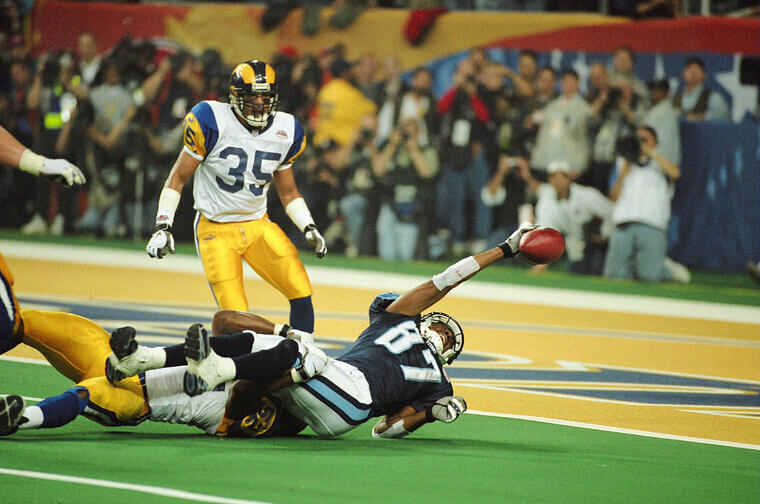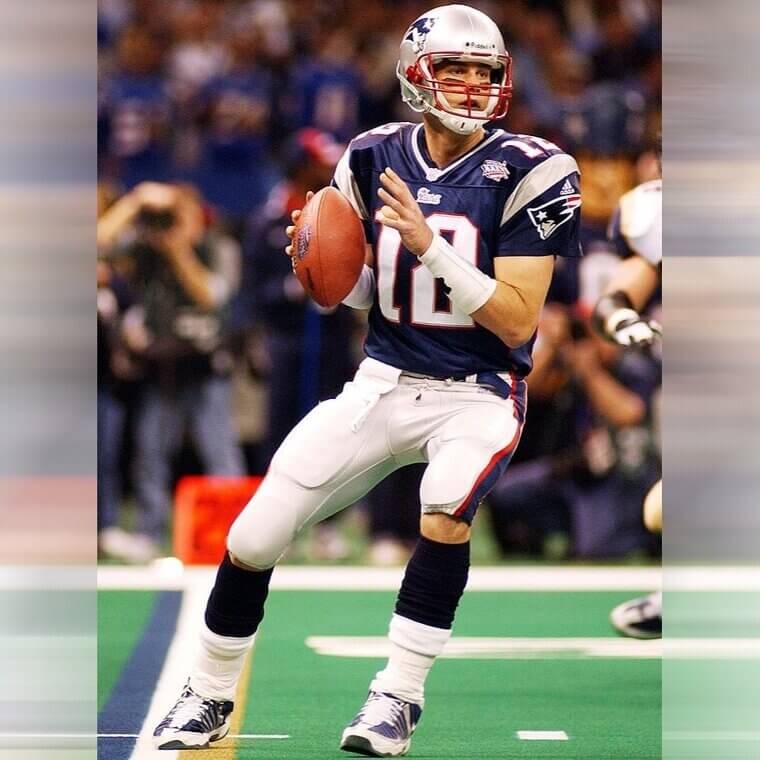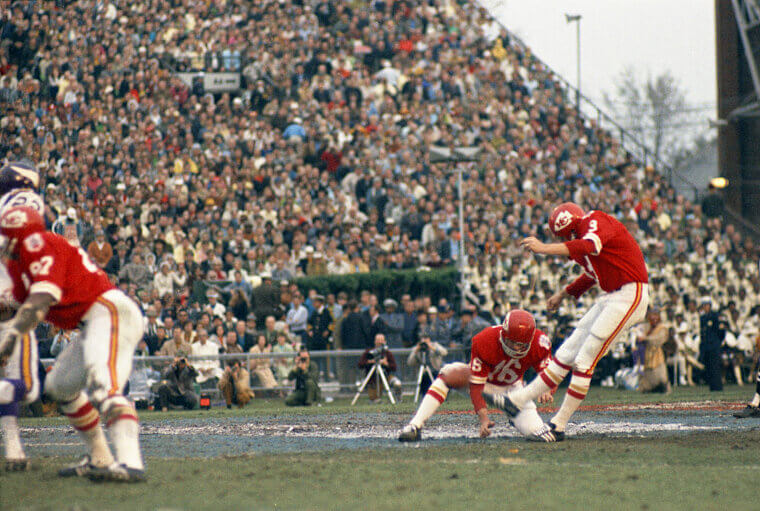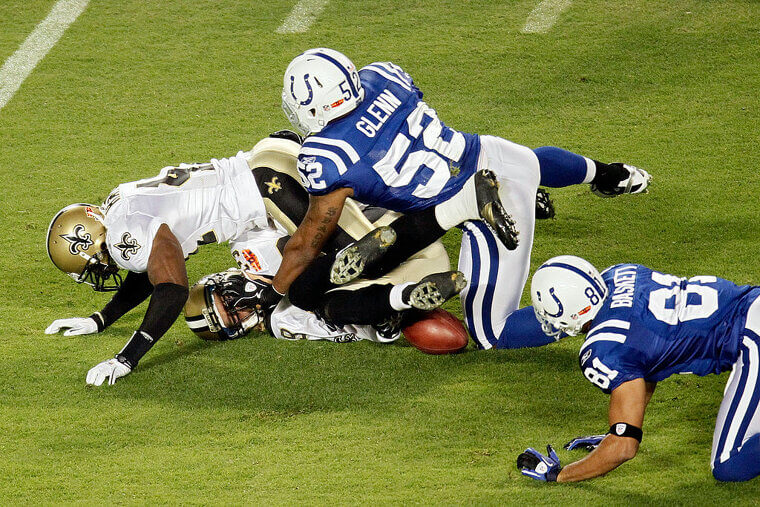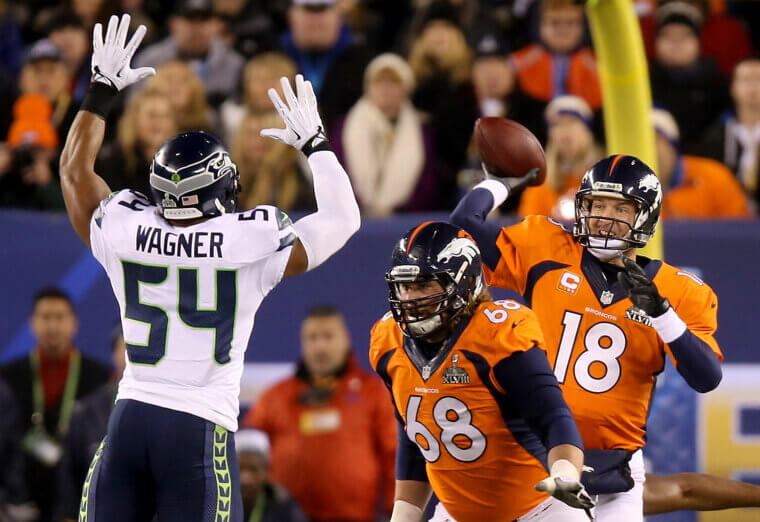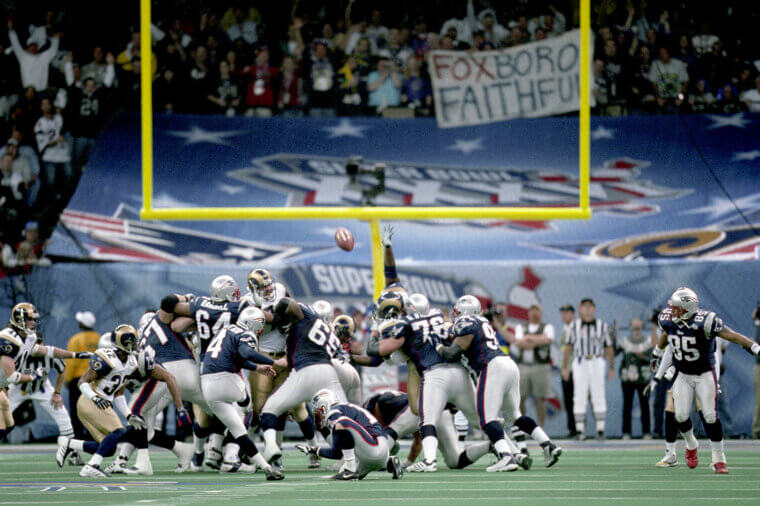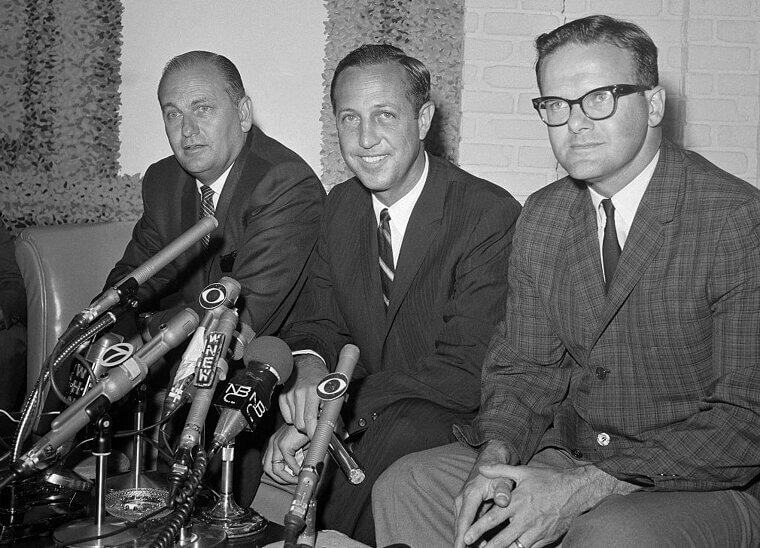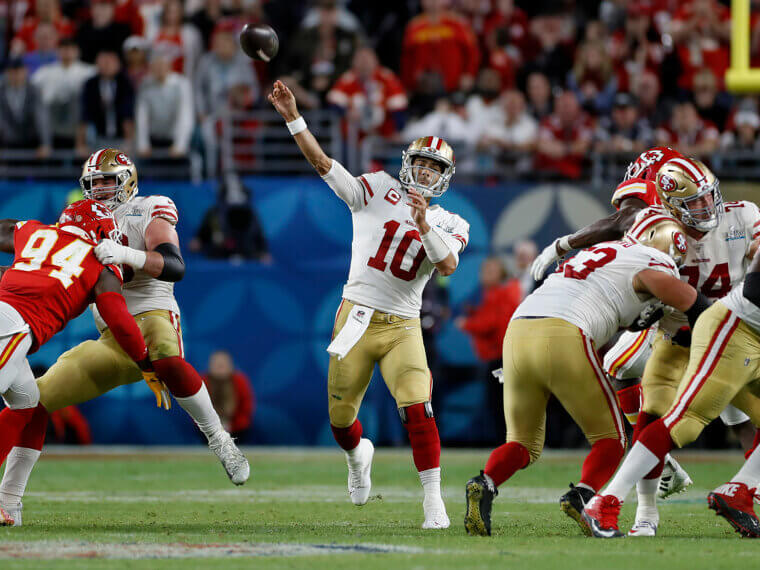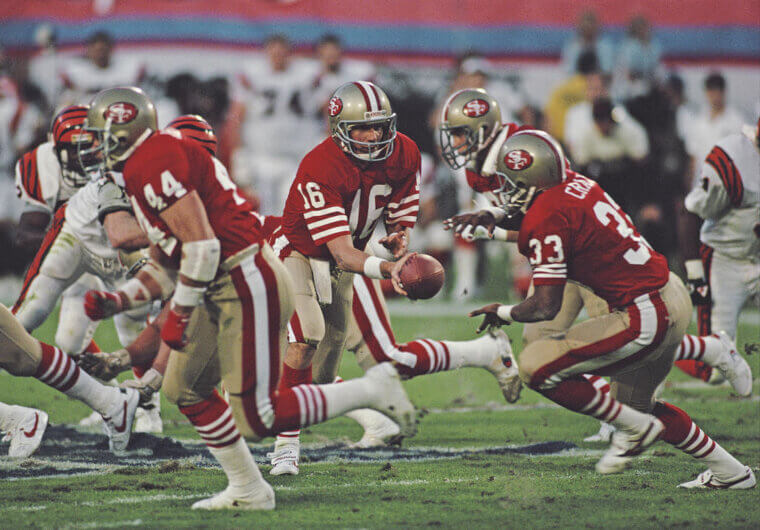Janet Jackson’s Wardrobe Malfunction (2004)
The 2004 Super Bowl halftime show took an unexpected turn when Janet Jackson and Justin Timberlake performed together. As their set concluded, Timberlake accidentally exposed Jackson’s chest due to a wardrobe mishap during a choreographed move. The moment, which lasted mere seconds, sparked widespread controversy and became one of the most talked-about incidents in Super Bowl history. It led to FCC fines, changes to broadcasting standards, and the rise of “wardrobe malfunction” as a cultural phrase.
The event remains a pivotal example of how live television can produce unintentional yet lasting moments of public debate and media scrutiny.
Patriots' "DeflateGate" Scandal Shadows Super Bowl XLIX (2015)
In the lead-up to Super Bowl XLIX, the New England Patriots faced intense scrutiny after being accused of deflating footballs during their AFC Championship win against the Colts. Dubbed “DeflateGate,” the controversy centered on whether the underinflated balls gave quarterback Tom Brady an unfair advantage. The NFL launched an investigation, ultimately suspending Brady for four games and fining the Patriots $1 million. Despite the scandal, the Patriots went on to win Super Bowl XLIX in a thrilling game against the Seahawks.
The incident remains a hot topic in NFL history, questioning sportsmanship and competitive integrity.
Eugene Robinson’s Arrest Before Super Bowl XXXIII (1999)
On the eve of Super Bowl XXXIII, Atlanta Falcons safety Eugene Robinson was arrested for solicitation, just hours after receiving the NFL’s Bart Starr Award for his character and leadership. The incident sent shockwaves through the team and the league, overshadowing the game. Robinson’s arrest added immense pressure, and his on-field performance suffered, including a critical missed tackle on a long touchdown pass.
The Denver Broncos defeated the Falcons 34-19, but the scandal surrounding Robinson remains one of the most infamous off-field distractions in Super Bowl history, raising questions about focus, leadership, and the pressures of the spotlight.
Patriots’ Controversial Goal-Line Call in Super Bowl XLIX (2015)
Super Bowl XLIX’s dramatic conclusion featured one of the most debated play calls in NFL history. With the Seattle Seahawks trailing the New England Patriots 28-24 and just yards from the end zone, the Seahawks chose to pass rather than hand the ball to their star running back, Marshawn Lynch. The decision backfired as Patriots cornerback Malcolm Butler intercepted Russell Wilson’s pass, sealing the victory for New England. Fans and analysts questioned why the Seahawks didn’t run the ball, given Lynch’s dominance.
The play call overshadowed an otherwise thrilling game and remains a defining moment of NFL strategy controversy.
Max McGee’s Hungover Heroics (Super Bowl I, 1967)
The first-ever Super Bowl featured an unexpected standout performance from Green Bay Packers wide receiver Max McGee, despite his less-than-ideal preparation. McGee, assuming he wouldn’t play much, broke curfew the night before and reportedly arrived at the game hungover. When starting receiver Boyd Dowler was injured early, McGee was thrust into action and shocked everyone with a stellar performance, catching seven passes for 138 yards and two touchdowns.
His heroics helped the Packers secure a 35-10 victory over the Kansas City Chiefs. McGee’s memorable day remains a legendary tale of unexpected greatness and one of Super Bowl folklore’s quirkiest stories.
The Patriots' Spygate Shadow Over Super Bowl XLII (2008)
In the months leading up to Super Bowl XLII, the New England Patriots were embroiled in the "Spygate" scandal, in which they were accused of illegally videotaping opposing teams' defensive signals. The controversy cast a shadow over their historic 16-0 regular season and pursuit of perfection. While the Patriots denied wrongdoing, critics questioned the legitimacy of their dominance. The Super Bowl only amplified the drama, as the underdog New York Giants stunned the Patriots 17-14, ending their perfect season.
The Spygate scandal remains a point of contention in NFL history, fueling debates about ethics and competitive fairness in the sport.
Jackie Smith’s Dropped Touchdown in Super Bowl XIII (1979)
Jackie Smith’s dropped touchdown pass in Super Bowl XIII became one of the most heartbreaking moments in NFL history. The Dallas Cowboys were trailing the Pittsburgh Steelers 21-14 when quarterback Roger Staubach found a wide-open Smith in the end zone. In a moment of agony for Cowboys fans, Smith dropped the perfectly placed pass, forcing Dallas to settle for a field goal. The Steelers ultimately won 35-31, and Smith’s drop was endlessly scrutinized.
Though a Hall of Fame tight end, this singular play overshadowed his stellar career, serving as a reminder of how fleeting moments can define football’s biggest stage.
Atlanta’s Collapse After Leading 28-3 Against the Patriots Fueled Conspiracy Theories at the Super Bowl LI (2017)
Super Bowl LI became infamous for the Atlanta Falcons’ historic collapse against the New England Patriots. Leading 28-3 late in the third quarter, the Falcons seemed poised for their first Super Bowl victory. However, a series of questionable play calls, missed opportunities, and the Patriots’ relentless comeback tied the game, leading to an overtime victory for New England, 34-28. The dramatic turnaround sparked conspiracy theories, with some fans questioning whether officiating or league interests played a role.
While no evidence supported such claims, the game remains a legendary cautionary tale about momentum, strategy, and the unpredictability of sports.
Michael Jackson’s Halftime “Takeover” Changed the Super Bowl Forever (1993)
Michael Jackson’s halftime performance at Super Bowl XXVII in 1993 revolutionized the concept of the Super Bowl halftime show. Prior to this, the halftime entertainment was often low-key, but Jackson’s larger-than-life spectacle set a new standard. Starting with a dramatic, minutes-long pause as he stood motionless on stage, the King of Pop captivated the audience before launching into iconic hits like “Billie Jean” and “Black or White.” The show’s focus on social themes, including “Heal the World,” and Jackson’s unmatched showmanship made it unforgettable.
While celebrated, some critics debated its dramatic flair, marking the beginning of halftime’s evolution into pop culture juggernaut territory.
The Giants’ Helmet Catch in Super Bowl XLII (2008)
Super Bowl XLII featured one of the most miraculous plays in NFL history: the "Helmet Catch." Trailing the undefeated New England Patriots 14-10 with just over a minute remaining, New York Giants quarterback Eli Manning escaped a near sack and launched a deep pass to David Tyree. Tyree, tightly covered, pinned the ball against his helmet while falling to the ground, securing a 32-yard gain. The improbable catch set up the game-winning touchdown, ending the Patriots’ perfect season in a stunning 17-14 upset.
Tyree’s catch remains an iconic moment of perseverance and skill, cementing its place in Super Bowl history.
Colin Kaepernick's Absence and the Anthem Protests at the Super Bowl LIV (2020)
Although Colin Kaepernick had not played in the NFL since 2016, his influence loomed over Super Bowl LIV. Kaepernick’s kneeling protest during the national anthem, aimed at raising awareness about racial injustice and police brutality, had sparked national debates that reverberated for years. By 2020, players and activists continued to address these issues, with some calling out the NFL for perceived hypocrisy in promoting social justice messages while Kaepernick remained unsigned.
The league’s handling of Kaepernick’s protests and career remained a flashpoint of controversy, highlighting the intersection of sports, activism, and systemic change on football’s biggest stage.
Jerry Rice’s Sticky Gloves Allegation (Super Bowl XXIII, 1989)
Years after Super Bowl XXIII, an enduring controversy emerged when legendary wide receiver Jerry Rice admitted to using Stickum—a banned adhesive substance—on his gloves during his career. In that game, Rice delivered a stunning performance, recording 11 receptions for 215 yards and earning MVP honors as the San Francisco 49ers defeated the Cincinnati Bengals 20-16. While Rice claimed the practice was common at the time, critics argued it cast a shadow on his achievements.
The revelation sparked debates about fairness and the NFL’s enforcement of rules, challenging the legacy of one of the greatest players in football history.
Gisele Bündchen Blames Patriots’ Loss on Receivers (2012)
After the New England Patriots’ heartbreaking loss to the New York Giants in Super Bowl XLVI, supermodel Gisele Bündchen, wife of quarterback Tom Brady, made headlines for her candid remarks. Frustrated by dropped passes during critical moments, Bündchen famously said, “My husband cannot [expletive] throw the ball and catch the ball at the same time,” while defending Brady to heckling fans. Her comments ignited a media frenzy, with some criticizing her for blaming the team and others sympathizing with her frustration.
The incident added an off-field layer to the already dramatic game, further highlighting the intense scrutiny surrounding Super Bowl defeats.
Beyoncé’s Political Statement Halftime Show (2016)
Beyoncé’s halftime performance at Super Bowl 50 sparked widespread conversation for its bold political undertones. During her rendition of “Formation,” dancers donned costumes reminiscent of the Black Panther Party, and the performance highlighted themes of Black empowerment and activism. The imagery and message drew both praise and backlash, with some applauding its cultural significance while others criticized it as inappropriate for a sports event. The NFL faced scrutiny over the show’s content, but Beyoncé stood firm in her artistic expression.
The performance remains a landmark moment, reflecting the power of the Super Bowl stage to amplify cultural and political messages.
Ben Roethlisberger’s Questionable Touchdown in Super Bowl XL (2006)
One of the most debated moments of Super Bowl XL occurred when Pittsburgh Steelers quarterback Ben Roethlisberger scored a controversial touchdown against the Seattle Seahawks. On a third-quarter scramble, officials ruled that Roethlisberger had crossed the goal line, despite replays showing the ball’s position as inconclusive. The touchdown extended the Steelers’ lead and shifted momentum in their eventual 21-10 victory. Critics argued the call should have been overturned, fueling accusations of biased officiating throughout the game.
The play remains a focal point in discussions about replay accuracy and its impact on high-stakes games like the Super Bowl.
Prince’s Risqué Halftime Performance (2007)
Prince’s 2007 Super Bowl halftime performance is widely celebrated as one of the greatest ever, but it wasn’t without controversy. During his electrifying set, the legendary artist performed behind a large backlit screen, creating a striking silhouette. When Prince played his iconic “Love Symbol” guitar, its shape and positioning raised eyebrows, with some viewers deeming it suggestive. Despite the brief uproar, many praised the artistry and showmanship of the performance, particularly his rendition of "Purple Rain" in actual rain.
The moment remains iconic, balancing the line between artistic expression and provocative imagery, and cementing Prince’s legacy as a halftime show legend.
Carl Jr. 's "All Natural Burger" Commercial for Super Bowl XLIX (2015)
Carl’s Jr. stirred controversy with its Super Bowl XLIX ad promoting the "All-Natural Burger." The commercial featured a scantily clad model walking through a farmers' market, with strategically placed produce covering her, before revealing the burger at the end. While the ad drew attention for its suggestive nature and humor, it sparked debates about objectification and the use of provocative marketing tactics during family-oriented events. Some praised its boldness, while others criticized it as inappropriate for the Super Bowl audience.
The ad, nonetheless, achieved its goal: generating buzz and solidifying Carl’s Jr.’s reputation for boundary-pushing advertising.
The Power Outage in Super Bowl XLVII (2013)
Super Bowl XLVII between the Baltimore Ravens and San Francisco 49ers took an unexpected turn when a partial power outage plunged the New Orleans Superdome into semi-darkness early in the third quarter. The 34-minute delay came as the Ravens held a commanding lead, seemingly shifting momentum when play resumed. The 49ers mounted a spirited comeback, narrowing the gap and intensifying the drama. Though the Ravens ultimately won 34-31, the blackout sparked widespread speculation about its cause and its potential impact on the game’s rhythm.
The incident remains a unique and surreal moment in Super Bowl lore, landing it a spot on this list of controversial Super Bowl moments.
Halftime Show “Censorship” With M. I. A. (2012)
The 2012 Super Bowl halftime show featuring Madonna took an unexpected turn when guest performer M.I.A. made a controversial gesture during their performance of “Give Me All Your Luvin’.” The British rapper flipped off the camera during the live broadcast, sparking backlash and leading to a flurry of complaints to the FCC. The NFL quickly apologized, calling the act "completely inappropriate" for family audiences. M.I.A. faced a lawsuit from the league, further fueling debates about artistic freedom versus broadcast standards.
The incident remains a contentious moment, reflecting the high stakes and scrutiny surrounding the Super Bowl halftime spectacle.
“Spygate 2.0” Allegations Pre-Super Bowl LIII (2019)
As the New England Patriots prepared to face the Los Angeles Rams in Super Bowl LIII, rumors of a renewed “Spygate” controversy—dubbed “Spygate 2.0”—began swirling. Reports suggested the Patriots might have filmed Rams practices or gained an unfair advantage, harkening back to the original Spygate scandal in 2007. Though no concrete evidence surfaced, the allegations reignited debates about the Patriots’ reputation and history with bending the rules.
The Patriots ultimately won the low-scoring game 13-3, but the accusations fueled ongoing narratives about their dynasty and added another layer of intrigue to their legacy in NFL history.
Patriots Fans Boycott Halftime Show (2019)
During Super Bowl LIII, a segment of New England Patriots fans made headlines for boycotting the halftime show featuring Maroon 5. The boycott was part of a broader controversy surrounding the NFL’s handling of Colin Kaepernick’s protest against racial injustice, which many felt the league had mishandled. Critics argued that the NFL used the halftime show to deflect attention from the ongoing debate. Patriots fans who participated in the boycott cited solidarity with Kaepernick and a rejection of what they perceived as the league's avoidance of meaningful action.
The protest highlighted the intersection of sports, activism, and cultural awareness on the Super Bowl stage.
Raiders’ Disputed Call in Super Bowl XVIII (1984)
Super Bowl XVIII saw the Los Angeles Raiders dominate the Washington Redskins, but not without controversy. A pivotal moment occurred when Raiders linebacker Jack Squirek intercepted a pass intended for Joe Washington, scoring a touchdown just before halftime. Critics debated whether the play resulted from brilliant anticipation or a misstep in the Redskins' strategy. Washington’s decision to call the risky screen pass was widely questioned, with many arguing it shifted momentum permanently in the Raiders' favor.
The play became one of the most memorable moments of the game, sparking discussions about strategy under pressure and its impact on the outcome.
49ers' Missed Holding Call in Super Bowl LIV (2020)
Super Bowl LIV between the San Francisco 49ers and Kansas City Chiefs was a tightly contested battle, but a missed holding call late in the game became a focal point for fans and analysts. On a crucial 3rd-and-15 play, Chiefs quarterback Patrick Mahomes completed a game-changing 44-yard pass, but replays suggested 49ers defensive lineman Nick Bosa was held during the play. The non-call sparked heated debates, as many believed it could have shifted the game's outcome.
The Chiefs ultimately won 31-20, but the controversy lingered, emphasizing the significant role officiating plays in high-stakes matchups.
Joe Namath’s Guarantee (Super Bowl III, 1969)
Joe Namath made history before Super Bowl III by boldly guaranteeing a victory for his underdog New York Jets over the heavily favored Baltimore Colts. At a pregame event, Namath confidently declared, “We’re going to win the game. I guarantee it.” His words electrified fans and fueled anticipation for the matchup. Namath delivered on his promise, leading the Jets to a stunning 16-7 victory and earning MVP honors.
The win was a defining moment for the AFL, proving it could compete with the NFL, and Namath’s guarantee became a cornerstone of Super Bowl lore, symbolizing swagger and belief in the impossible.
Cam Newton’s Lack of Hustle in Super Bowl 50 (2016)
Super Bowl 50 was a tough outing for Cam Newton and the Carolina Panthers, but one play in particular ignited controversy. Late in the fourth quarter, Newton appeared to hesitate when a loose ball hit the ground after being stripped by Von Miller of the Denver Broncos. Instead of diving for the fumble, Newton stepped back, sparking criticism about his effort and commitment in the game’s crucial moments. The Broncos recovered the ball, solidifying their 24-10 victory.
Newton’s decision was heavily debated, overshadowing his MVP season and raising questions about leadership and competitive drive on football’s biggest stage.
Broncos' Blowout Loss in Super Bowl XXIV (1990)
Super Bowl XXIV saw the Denver Broncos endure one of the most lopsided defeats in NFL history, falling 55-10 to the San Francisco 49ers. The game was dominated by 49ers quarterback Joe Montana, who threw for five touchdowns and led his team to an effortless victory. The Broncos’ lackluster performance, marked by turnovers and defensive struggles, drew criticism and disappointment from fans. The loss remains the largest margin of defeat in Super Bowl history.
It sparked discussions about the Broncos’ preparedness and the overwhelming strength of the 49ers’ dynasty under coach Bill Walsh.
Controversial Field Goal in Super Bowl XXV (1991)
Super Bowl XXV ended in heartbreak for the Buffalo Bills and sparked one of the most debated moments in Super Bowl history. With just eight seconds left, Bills kicker Scott Norwood attempted a 47-yard field goal to win the game against the New York Giants. The kick sailed wide right, sealing the Giants’ 20-19 victory. While the pressure-filled miss was within Norwood's range, some questioned whether the Bills’ offensive play-calling could have set up a closer attempt.
The miss remains a painful moment for Bills fans, symbolizing the fine line between victory and defeat on the sport’s grandest stage.
Kevin Dyson's One-Yard Short Play in Super Bowl XXXIV (2000)
Super Bowl XXXIV delivered one of the most dramatic endings in NFL history, forever defined by Kevin Dyson’s “one-yard short” play. With just seconds remaining, the Tennessee Titans trailed the St. Louis Rams 23-16 and were inches from the end zone. Quarterback Steve McNair completed a pass to Dyson, who stretched toward the goal line as Rams linebacker Mike Jones made a game-saving tackle. Dyson fell just one yard short, sealing the Rams’ victory.
The play remains a symbol of Super Bowl heartbreak, showcasing the razor-thin margins that separate triumph and defeat on football’s biggest stage.
Tom Brady's "Tuck Rule" Legacy (Super Bowl XXXVI, 2002)
Though the “Tuck Rule” game occurred in the AFC Championship, its legacy loomed over Tom Brady’s first Super Bowl victory in XXXVI. The controversial rule was invoked when a fumble by Brady during the Patriots’ playoff game against the Raiders was overturned, ruling it an incomplete pass. This pivotal moment allowed New England to advance and ultimately defeat the St. Louis Rams in the Super Bowl. While the Patriots’ championship run solidified Brady’s rise to greatness, critics debated the rule’s fairness and impact.
The incident remains a lightning rod in discussions about Brady’s career and the role of officiating in NFL history.
Jan Stenerud’s Kicking Collapse in Super Bowl IV (1970)
Jan Stenerud, the Kansas City Chiefs' reliable kicker and a future Hall of Famer, had an uncharacteristically rough outing in Super Bowl IV against the Minnesota Vikings. Early in the game, Stenerud missed a 48-yard field goal attempt, a misstep that could have shifted momentum in the Chiefs’ favor. Despite his struggles, the Chiefs dominated the Vikings 23-7, with their defense and running game leading the charge. Stenerud’s rare lapse on football’s biggest stage remains a point of discussion in Super Bowl lore.
It highlighted the pressure and unpredictability even the most skilled players face, and made it one of the most talked-about football moments ever.
Saints’ Onside Kick Gamble in Super Bowl XLIV (2010)
Super Bowl XLIV featured one of the boldest calls in NFL history when the New Orleans Saints opened the second half with an unexpected onside kick. Down 10-6 to the Indianapolis Colts, Saints head coach Sean Payton shocked everyone with the high-risk play, dubbed "Ambush." Saints’ safety Chris Reis recovered the ball, shifting momentum squarely in New Orleans’ favor. The gamble paid off, as the Saints went on to win their first-ever Super Bowl 31-17.
The play remains a defining moment of creativity and courage, showcasing how daring decisions can change the course of championship games.
Broncos’ Botched Snap in Super Bowl XLVIII (2014)
Super Bowl XLVIII got off to a disastrous start for the Denver Broncos when a botched snap on the game’s opening play resulted in a safety for the Seattle Seahawks. Center Manny Ramirez’s snap sailed past quarterback Peyton Manning, who was unable to recover the ball. The miscue set the tone for a nightmarish game for Denver, as the Seahawks dominated en route to a 43-8 victory. The early error became a symbol of the Broncos’ struggles and highlighted the importance of execution under pressure.
It remains one of the most infamous opening plays in Super Bowl history, and it's not hard to see why.
The Rams’ Defensive Holding in Super Bowl XXXVI (2002)
Super Bowl XXXVI was a thrilling contest between the underdog New England Patriots and the St. Louis Rams' "Greatest Show on Turf." However, controversy arose when Rams defensive players were accused of holding and interfering with Patriots receivers throughout the game. While some believed these tactics slowed the Patriots' offense, others argued that officials missed several calls. The Rams' strategy and the lack of penalties became a talking point, especially after the Patriots won on a last-second field goal, 20-17.
The game remains a memorable clash of styles and a key moment in Tom Brady and the Patriots' rise to dominance.
Pete Rozelle’s NFL-AFL Merger Announcement Timing (Super Bowl III, 1969)
Super Bowl III, famous for Joe Namath’s iconic guarantee and the New York Jets’ shocking upset of the Baltimore Colts, also featured a major off-field announcement: NFL Commissioner Pete Rozelle’s timing of the official NFL-AFL merger details. The announcement, which outlined the upcoming unification of the two leagues, drew criticism for overshadowing the game itself. Many felt it distracted from the historic matchup and the Jets’ underdog story.
While the merger ultimately transformed the sport, creating the modern NFL, the timing of Rozelle’s reveal during the Super Bowl remains a debated decision, blending the business of football with its biggest stage.
Jimmy Garoppolo’s Missed Deep Throw in Super Bowl LIV (2020)
In Super Bowl LIV, the San Francisco 49ers had a golden opportunity to reclaim momentum late in the fourth quarter against the Kansas City Chiefs. Trailing 24-20 with less than two minutes left, quarterback Jimmy Garoppolo had Emmanuel Sanders open deep downfield. However, Garoppolo overthrew the pass, missing what could have been a game-changing touchdown. The Chiefs sealed their victory shortly after, winning 31-20. The missed throw became a focal point of postgame analysis, with critics questioning Garoppolo’s ability to perform under pressure.
It remains one of the most pivotal “what if” moments in Super Bowl history, and a moment San Francisco 49ers' fans will likely never forget.
Joe Montana’s “The Catch” Call-Out (Super Bowl XXIII, 1989)
Joe Montana’s coolness under pressure became legendary during Super Bowl XXIII, particularly in a now-iconic moment before leading the San Francisco 49ers on a game-winning drive against the Cincinnati Bengals. In the huddle, with just over three minutes remaining and trailing 16-13, Montana famously pointed out comedian John Candy in the stands, calming his teammates. Montana’s ability to stay composed was pivotal, as he orchestrated a 92-yard drive that ended with a touchdown pass to John Taylor, securing a 20-16 victory.
The anecdote underscores Montana’s nickname, “Joe Cool,” and remains a defining moment in Super Bowl lore.

